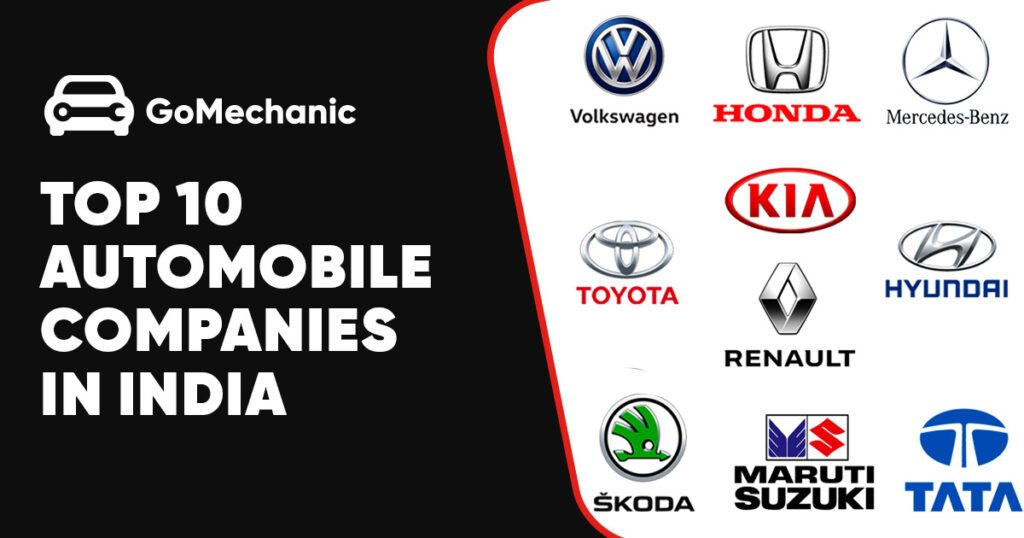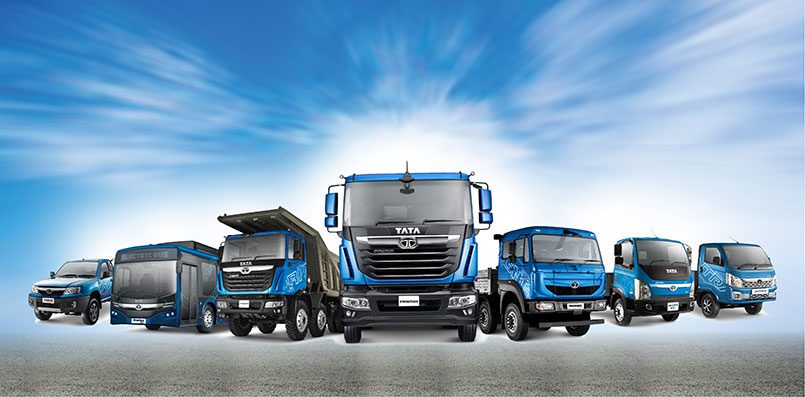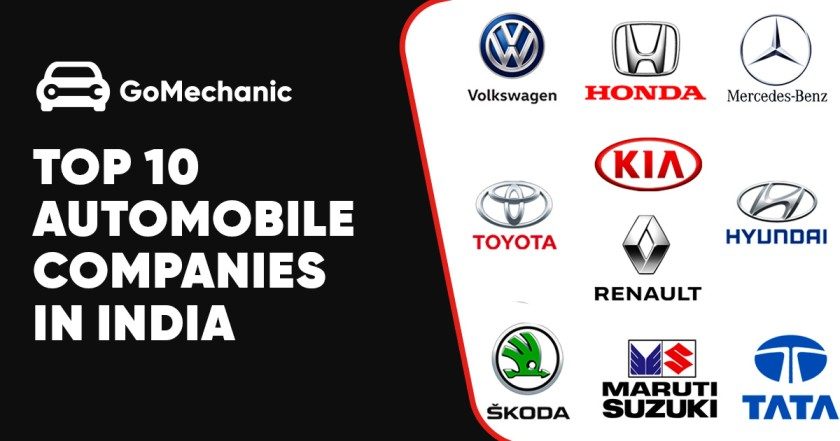The Indian automobile industry is a dynamic and ever-evolving sector, known for its resilience and adaptability. As we step into 2023, it’s crucial to keep a finger on the pulse of the automotive landscape in India. The year ahead promises exciting developments, fierce competition, and advancements in technology. In this article, we will explore the top 10 automobile manufacturers in India, shining a spotlight on the companies leading the race and shaping the industry’s future.
The Indian Automotive Landscape: A Snapshot
Before we delve into the top 10 automobile manufacturers, let’s take a moment to understand the current state of the Indian automotive industry. India is one of the largest automotive markets globally, and it has been consistently attracting attention from international automakers. The industry encompasses various vehicles, from two-wheelers to passenger cars, commercial vehicles, and electric vehicles (EVs).
There has been a notable shift towards sustainable mobility in recent years, with the increased focus on electric and hybrid vehicles. The Indian government’s initiatives, including the Faster Adoption and Manufacturing of Hybrid and Electric Vehicles (FAME) scheme, have been instrumental in driving the adoption of cleaner and more efficient technologies.
Furthermore, the Indian automotive sector has embraced advanced safety features, enhanced connectivity, and artificial intelligence, making vehicles smarter, safer, and more efficient. The competition is fierce, and Indian consumers have an array of options to choose from.

The Top 10 Automobile Manufacturers in India for 2023
Now, let’s turn our attention to the top 10 automobile manufacturers in India for 2023. These companies have demonstrated exceptional innovation, market presence, and product quality. They are not only competing within India but are also expanding their global footprint.
1. Maruti Suzuki India Ltd
Maruti Suzuki remains the undisputed leader in the Indian automobile industry. It consistently tops the sales charts and offers a wide range of affordable and reliable vehicles. In 2023, Maruti Suzuki is expected to continue its dominance with a focus on expanding its electric vehicle portfolio.

2. Hyundai Motor India Ltd
Hyundai has established a strong foothold in India with its popular and stylish cars. The company has been proactive in introducing electric and hybrid vehicles, catering to the growing demand for eco-friendly options.

3. Tata Motors
Tata Motors has been on an upward trajectory in recent years, with a strong focus on safety and innovation. The Tata Nexon EV, an electric SUV, has garnered significant attention and is contributing to the company’s success in the EV market.

4. Mahindra & Mahindra Ltd
Mahindra has long been associated with rugged and reliable utility vehicles. The company’s commitment to electric mobility is evident through offerings like the eKUV100 and eXUV300. Mahindra’s global presence is also on the rise.

5. Kia India
Kia made a strong entry into the Indian market with the Seltos and the Sonet. The company’s focus on design, technology, and value for money has earned it a solid position among Indian consumers.
6. Toyota Kirloskar Motor
Toyota company is well known for its commitment to quality and safety in its automobiles. The company is set to introduce more hybrid and electric vehicles in the Indian market, catering to environmentally conscious consumers.
7. Renault India
Renault has been a significant player in the Indian market, offering practical and stylish vehicles. The company’s commitment to sustainability is evident with the Kiger EV and other forthcoming electric models.
8. Volkswagen India
Volkswagen is known for its German engineering and build quality. The company is making strides in the Indian market with its T-Roc and Tiguan SUVs. They are also focusing on local assembly and localization.
9. Ford India
Ford’s partnership with Mahindra is expected to drive its presence in India. The company is gearing up to introduce new SUVs and electric vehicles in the Indian market.
10. Nissan India
Nissan has been working to strengthen its presence in India, focusing on SUVs like the Magnite and Kicks. The company’s strategic collaborations and product launches are expected to drive growth.
Key Trends and Innovations
As we explore the top 10 automobile manufacturers in India for 2023, it’s essential to highlight the key trends and innovations that are driving the industry forward.
Electric Vehicles (EVs)
The shift towards electric mobility is one of the most significant trends in the Indian automotive sector. The Indian government’s incentives and policies have encouraged automakers to invest in EVs. Several manufacturers are launching electric and hybrid vehicles, aiming to reduce emissions and promote sustainability.
Connected Vehicles
Connected cars, equipped with advanced telematics and infotainment systems, are becoming increasingly popular in India. These systems provide real-time data, enhance safety, and offer a seamless driving experience. Automobile manufacturers are investing in connected technologies to meet consumer demands.
Safety Features
Safety is a top priority for both consumers and regulators. Indian manufacturers are incorporating advanced safety features like airbags, antilock braking systems (ABS), and electronic stability control (ESC) into their vehicles. These features not only enhance safety but also align with global safety standards.
Local Manufacturing and Sourcing
To reduce costs and ensure competitiveness, many manufacturers are focusing on local manufacturing and sourcing. This strategy allows them to produce vehicles that are more affordable for Indian consumers while creating jobs and contributing to the local economy.
Export Opportunities
Indian automobile manufacturers are increasingly exploring export opportunities. The “Make in India” initiative has positioned India as a hub for manufacturing and exporting vehicles to international markets. Companies like Mahindra, Tata Motors, and Hyundai have been successful in this regard.
Challenges and Opportunities
While the Indian automotive industry offers tremendous opportunities, it also faces certain challenges:
1. Supply Chain Disruptions
The industry continues to grapple with supply chain disruptions, primarily due to the global semiconductor shortage. This has impacted production schedules and delivery times.
2. Rising Fuel Prices
Escalating fuel prices are a concern for both consumers and manufacturers. The demand for more fuel-efficient and electric vehicles is on the rise.
3. Changing Regulatory Environment
Evolving emission norms and safety regulations require manufacturers to adapt quickly. Complying with these regulations while maintaining affordability is a delicate balance.
4. Competition from International Players
International automakers are expanding their presence in India, intensifying competition. Domestic manufacturers must innovate to stay competitive.
Despite these challenges, the Indian automotive industry is well-positioned for growth and transformation. The push for sustainability, the adoption of advanced technologies, and the focus on safety are driving the industry forward.
Conclusion
The Indian automobile manufacturing landscape is a dynamic and evolving space with immense potential. As we step into 2023, the top 10 automobile manufacturers in India are committed to innovation, sustainability, and delivering exceptional products to consumers. The industry is not only catering to the domestic market but also expanding its global presence.
The trends of electric mobility, connected vehicles, and advanced safety features are shaping the industry’s future. As the Indian government continues to support and incentivize these developments, we can expect to see a more eco-friendly, connected, and safer driving experience for Indian consumers. It is an exciting time for the Indian automotive industry as it races towards
Frequently Asked Questions: India’s Automobile Companies
What are India’s major automobile manufacturing companies?
India is home to several major automobile manufacturing companies, including Maruti Suzuki, Hyundai, Tata Motors, Mahindra & Mahindra, Kia Motors, Toyota Kirloskar Motor, Renault India, Volkswagen India, Ford India, and Nissan India, among others.
Which Indian automobile company is the largest by market share?
Maruti Suzuki is the largest automobile company in India by market share. It consistently leads the Indian market in terms of sales and market presence.
What is the current state of the electric vehicle (EV) market in India?
The Indian EV market is growing rapidly. Several automobile manufacturers are introducing electric and hybrid vehicles to cater to the increasing demand for sustainable mobility options.
Which Indian automobile company is known for its focus on safety features?
Tata Motors is known for its strong focus on safety features in its vehicles. The company has been proactive in implementing advanced safety technologies and has received high safety ratings for some of its models.
Are Indian automobile companies exporting their vehicles to international markets?
Yes, many Indian automobile companies, including Mahindra, Tata Motors, and Hyundai, are exporting their vehicles to international markets. India is becoming a hub for manufacturing and exporting vehicles to various countries.
How are Indian automobile companies addressing the global semiconductor shortage?
Indian automobile companies, like their global counterparts, have faced challenges due to the semiconductor shortage. They are actively working to manage their supply chains and adapt production schedules to mitigate the impact.
What are the key trends in the Indian automobile industry for 2024?
Key trends in the Indian automobile industry for 2024 include a focus on electric vehicles, connected vehicles, advanced safety features, local manufacturing and sourcing, and export opportunities.
What are the key trends in the Indian automobile industry for 2023?
Kia India has gained recognition for its stylish and value-for-money cars. Models like the Seltos and Sonet have been well-received in the Indian market.
What role is the Indian government playing in promoting electric mobility?
The Indian government has launched initiatives like the Faster Adoption and Manufacturing of Hybrid and Electric Vehicles (FAME) scheme to promote electric mobility. It offers incentives and subsidies to manufacturers and consumers to accelerate the adoption of electric vehicles.


I will right away grab your rss as I can not find your email subscription link or e-newsletter service. Do you’ve any? Please permit me know in order that I could subscribe. Thanks.
Hey there, you did an amazing job! I’m recommending this to my friends as I’m sure they’ll benefit from this as much as I did.
I’ll right away grab your rss feed as I can’t find your e-mail subscription link or e-newsletter service. Do you’ve any? Kindly let me know in order that I could subscribe. Thanks.
An attention-grabbing discussion is value comment. I feel that it’s best to write more on this topic, it may not be a taboo topic however typically individuals are not sufficient to speak on such topics. To the next. Cheers
There may be noticeably a bundle to know about this. I assume you made certain nice factors in options also.
I like this post, enjoyed this one thank you for posting. “To affect the quality of the day that is the art of life.” by Henry David Thoreau.
You actually make it appear really easy with your presentation but I find this topic to be actually something which I feel I might never understand. It kind of feels too complex and very vast for me. I am taking a look forward for your next put up, I will try to get the hold of it!
Excellent goods from you, man. I have understand your stuff previous to and you are just too great. I actually like what you have acquired here, really like what you’re stating and the way in which you say it. You make it entertaining and you still care for to keep it sensible. I can not wait to read far more from you. This is actually a terrific site.
Good takeaways
Thank you a lot for providing individuals with a very memorable chance to read critical reviews from this blog. It really is so ideal plus packed with a lot of fun for me and my office fellow workers to search your blog at least thrice per week to read through the newest things you have got. And indeed, I’m just at all times impressed with the magnificent creative concepts served by you. Selected 2 points in this article are definitely the most efficient I have ever had.
Can you be more specific about the content of your article? After reading it, I still have some doubts. Hope you can help me.